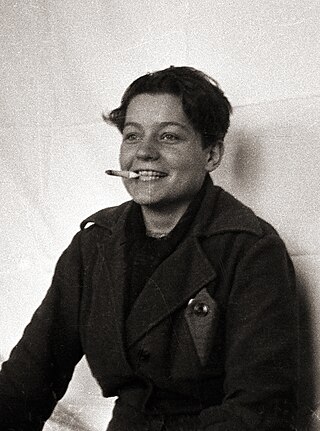Other uses
- Wangenheimia, a genus of Mediterranean plants in the grass family
Wangenheim is a municipality in the district of Gotha, in Thuringia, Germany.
Wangenheim may also refer to:

Eduard Freiherr von Böhm-Ermolli was an Austrian general during World War I who rose to the rank of field marshal in the Austro-Hungarian Army. He was the head of the Second Army and fought mainly on the front of Galicia during the entire conflict. On 30 October 1940, Böhm-Ermolli was made a German Generalfeldmarschall.

A Generaloberst was the second-highest general officer rank in the German Reichswehr and Wehrmacht, the Austro-Hungarian Common Army, the East German National People's Army and in their respective police services. The rank was equal to a four-star full general but below a general field marshal. The rank was equivalent to a Generaladmiral in the Kriegsmarine until 1945 or to a Flottenadmiral in the Volksmarine until 1990. It was the highest ordinary military rank and the highest military rank awarded in peacetime; the higher rank of general field marshal was awarded only in wartime by the head of state. In general, a Generaloberst had the same privileges as a general field marshal.
Christoph von Wangenheim was a German fashion photographer of the late 1960s through the early 1980s.

Gustav von Wangenheim was a German actor, screenwriter and director.

Hans, Baron von Wangenheim was a diplomat for Imperial Germany.

Moritz Friedrich Joseph Eugen Freiherr Auffenberg von Komarów was an Austro-Hungarian Military officer in the Austro-Hungarian Army and Minister of War. At the outbreak of World War I, he took command of the Fourth Army.

Generaloberst Arthur Freiherr Arz von Straußenburg was an Austro-Hungarian colonel general and last Chief of the General Staff of the Austro-Hungarian Army. At the outbreak of the First World War, he commanded the 15th Infantry Division. Soon, he was promoted to the head of the 6th Corps and the First Army. He participated on the Gorlice–Tarnów Offensive in 1915 and the countryside of Romania in 1916. In March 1917, he became Chief of the General Staff until his resignation on 3 November 1918.

The Lüttwitz family is an old Silesian noble family originating from Upper Lusatia, whose members held significant military posts within the German Empire.
Konrad Freiherr von Wangenheim was a German army Cavalry officer, a horse rider who competed at the 1936 Summer Olympics in Berlin, securing a gold medal for the German equestrian team whilst suffering from a broken collarbone.

Alexander Freiherr von Krobatin was an Austrian field marshal and Imperial and Royal Minister of War for Austria-Hungary between 1912 and 1917 — for most of World War I.

Friedrich Freiherr (Baron) von Hotze, was a Swiss-born general in the Austrian army during the French Revolutionary Wars. He campaigned in the Rhineland during the War of the First Coalition and in Switzerland in the War of the Second Coalition, notably at Battle of Winterthur in late May 1799, and the First Battle of Zurich in early June 1799. He was killed at the Battle of Linth River.
A Proprietor, or Inhaber, was a term used in the Habsburg military to denote special honors extended to a noble or aristocrat. The Habsburg army was organized on principles developed for the feudal armies in which regiments were raised by a wealthy noble, called the Inhaber (proprietor) who also acted as honorary colonel. Originally, he raised the regiment, funded its needs, and received a portion of its revenue, which might be plunder or loot. He also shared in its shame or its honors. The Prussian and Imperial Russian military adopted a similar system. In the United Kingdom there is a similar honorary title called colonel-in-chief.
Baroness Elisabeth of Wangenheim-Winterstein was the wife of Charles Augustus, Hereditary Grand Duke of Saxe-Weimar-Eisenach, and the mother of Prince Michael, current head of the House of Saxe-Weimar-Eisenach.

Eduard Clemens Franz Anna Freiherr von Wangenheim, known as Eduard von Winterstein, was an Austrian-German film actor who appeared in over one hundred fifty German films during the silent and sound eras. He was also a noted theater actor.
Rohr is the surname of:
Major-General Christoph August von Wangenheim was a Hanoverian Army officer and politician.

Ingeborg "Inge" von Wangenheim was a German actress who married actor Gustav Von Wangenheim and joined the Communist Party. After the war, she became a successful East German writer.
Winterstein may refer to:
Friedel Freiherr von Wangenheim was a German songwriter, playwright, and actor.
Alexander Freiherr von Wangenheim was a German Nazi politician.